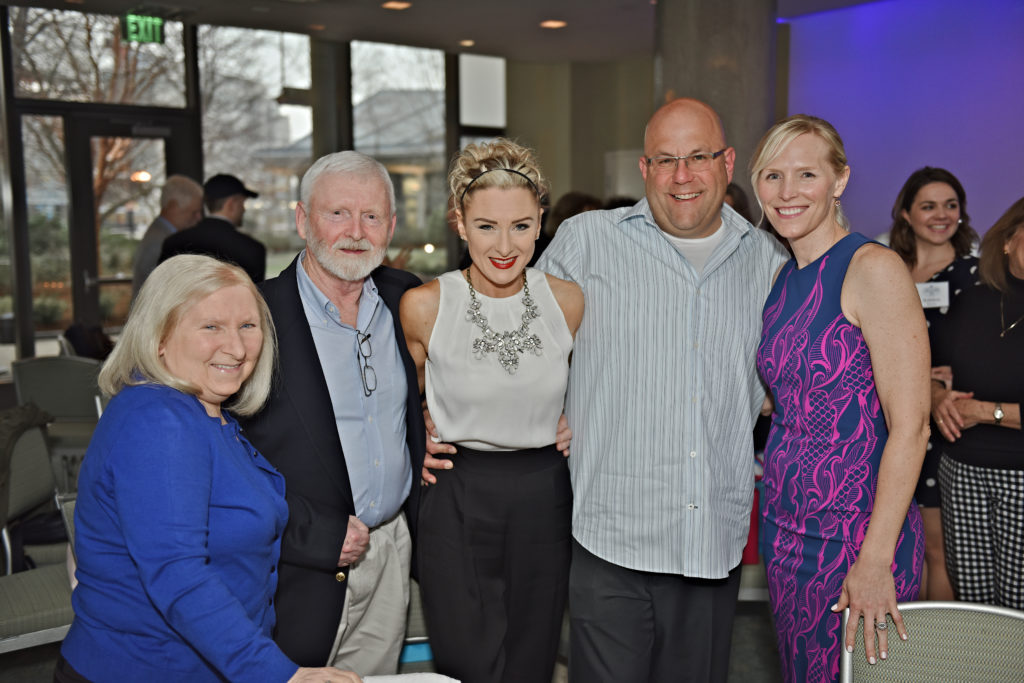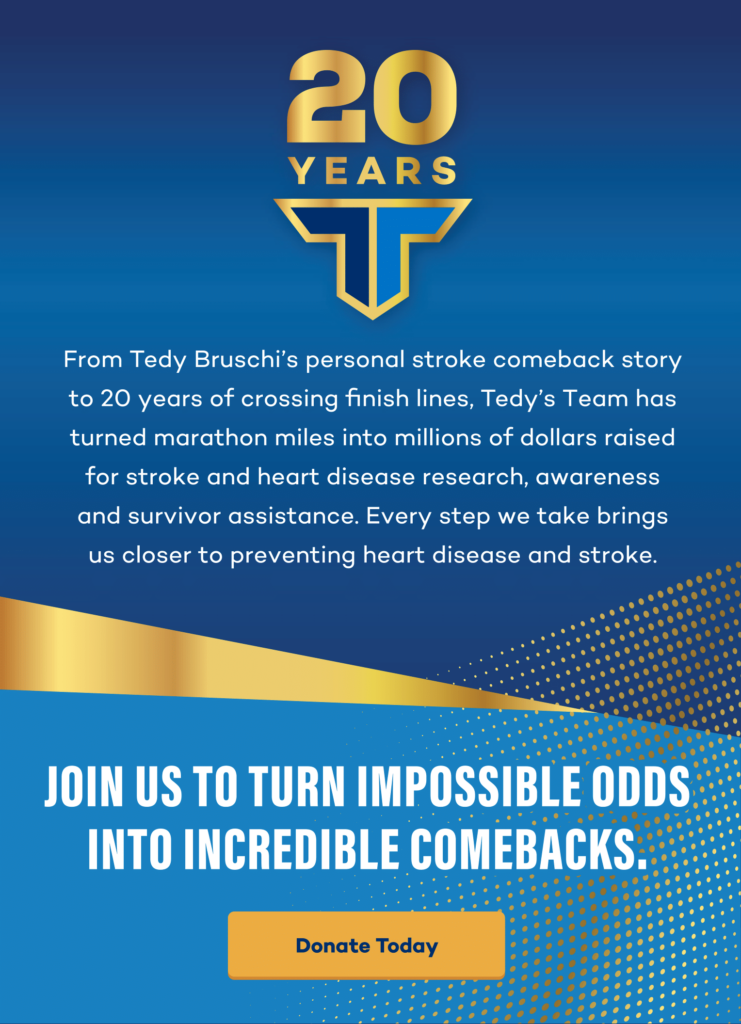
Tedy's Team rookie, Bridget Seay (middle), runs in honor of her father, Dan King, who is a stroke survivor. After Dan suffered his stroke in 2009, there was a lot that he didn't know. Now, he wants to share his experience and advice with fellow stroke survivors and caregivers to help them in their recovery journeys.
On March 7, 2009, I had a major stroke, known as a traumatic intracranial hemorrhage, or bleeding in my brain. The road to recovery has spanned the past 10 years, and while I’ve had some great medical care, rehab and caregiver support, there are still many things I had to learn for myself. Here is some helpful advice that I believe all survivors and caregivers should know about stroke and the recovery process.
- The first time I saw myself in a mirror, I was in shock! While at the hospital, I went to the rehab gym and they set me up between the parallel bars so I could see myself in a full-length mirror. I was a mess. It was important for me to see myself, and to move forward.
- The recovery process is different for everyone. There is not always a definitive answer when it comes to stroke recovery. Every stroke and every person are different. My doctors told me that I may never walk or talk again, but my comeback proved them wrong.
- Recovery takes time, but I didn’t know that right away! 6 months after my stroke, I met with a PA, and she asked if we would like to see my MRIs, I said “yes!” She told us that it could take two or three years to clear my brain of the blood from my hemorrhage, and from that moment on it changed how I thought about myself and gave me a spring board to the future. Find that positive place and hang on to it. It’s your future, fight for it!!
- Everyone’s stroke is different. There are left & right-side strokes. In my case, my right arm and leg were affected, and I had trouble speaking. My Dad had a left side stroke, but he could speak and could be understood. The journey will be different for each person.
- Since my stroke, I process and receive information differently than before. I need to hear it audibly, see it visually, and speak it. YouTube videos are a good alternative to reading text. Our input has changed now, and it may be good, or bad, but it’s different.
- Caregivers need to advocate for/assist survivors. Almost immediately after my stroke, I had to sign some forms, but I was yet to learn how to print and sign my name with my left hand. I also struggled with reversing vowels like i&e, o&u, a&i, making this a difficult task. During this time, it is important to have support from your family and friends to help you with tasks like this.
- Rehab is a new journey that will last a lifetime. My speech is different now; it will never be the same. Aphasia is the medical term that comes from the Greek word for “” I think they should use speechless because no one with Aphasia can pronounce Aphasia. Never lose your faith or motivation, stay positive!
- There are days that I’m exhausted. It took me 5 years since my stroke to realize I needed to take a nap or have some down time every afternoon. Make sure to give yourself that time. It’s important.
- In some situations, you may be the ONLY PERSON who recognizes a stroke. Learn the warning signs and remember to BE FAST and speak up when you see someone experiencing the symptoms – it could save a life!
- BE FAST can apply to rehab as well. Find the best center and quickly attack your rehab. It will make a big difference. Find a facility that maximizes your therapy time. Never lose your faith or motivation. Stay positive!
